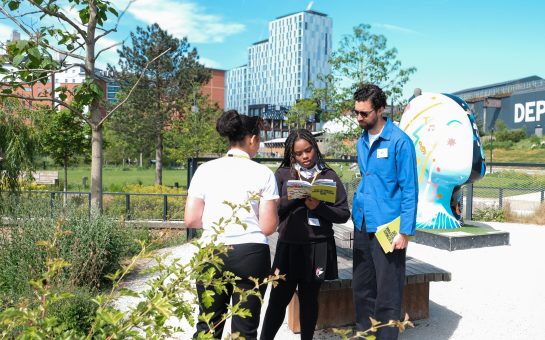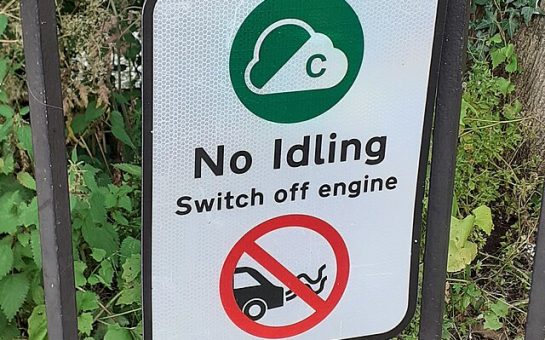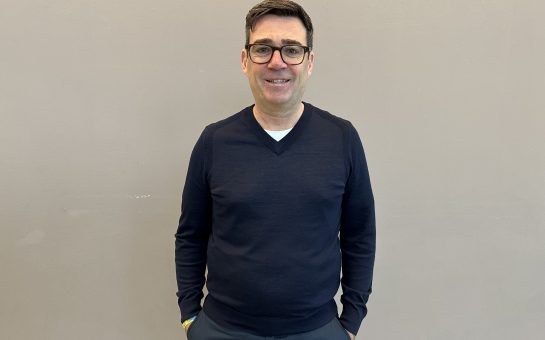A Greenpeace activist who spent three months in Russian prisons after an ‘ill-fated’ protest has encouraged people to ‘do whatever is within their power’ to help create a greener, cleaner, safer world for future generations.
Phil Ball spoke to MM after a special screening of Black Ice – a documentary of the ‘Arctic 30’ protest against oil drilling in the Pechora Sea in September 2013 – at Eighth Day Café on Oxford Road.
While he believes changing public attitudes and growing public consciousness of environmentalism is encouraging, Phil argues more needs to be done to put pressure on governments to act ethically, and in an environmentally-friendly way.
“I think that things are changing,” he said.
“David Cameron – when he got in last time – wanted the coalition to be the ‘greenest government ever’. He said that and it helped his image.
“The fact that saying, ‘we are the greenest government’ is seen as a good thing, gives organisations such as ours, clout.”
But while Phil believes environmentally-friendly, ‘green’ policies being seen as desirable is promising, a conflict of interests between energy companies and government, and leaked letters from Chancellor of the Exchequer, George Osborne encouraging hydraulic fracturing (‘fracking’), give him cause for concern.
In July 2012 Osborne was accused of pushing for Britain to become a worldwide hub for fossil fuels, after it emerged that his father-in-law was the head of a lobbying organisation for major oil companies, the Shell and BP-sponsored British Institute of Energy Economics.
Then, in January 2015 a letter from the Chancellor was leaked, in which he called for government departments to prioritise a promotion of fracking through interventions in local planning and securing public land as sites for the controversial extraction method.
“There is a revolving-door policy between certain companies in the oil industry and government,” he said.
“It is not even subtle. It is like father and son relationships. It is really unhealthy.
“I think George Osborne calling on all departments for an acceleration of support for fracking in any way they can is a clear indication of where Conservative priorities lie.
“Once you have fractured the substrata you can’t ever correct it. If you cause a problem, it is permanent.
“We need to act fast and strong to resist that.”
Phil, better than most, knows the effect direct action and protest can have on influencing public opinion and government policy.
Phil was one of 30 crew members aboard the Greenpeace ship, Arctic Sunrise, who launched a protest against Russian energy company Gazprom commencing the first oil drilling in the Prirazlomnoye field in September 2013.
After the Russian coastguard fired ‘warning shots’ in the direction of Arctic Sunrise, Phil and his fellow activists were boarded, arrested and subsequently spent three months in Russian prisons before receiving a pardon from President Vladimir Putin.
“We felt it had gone so, so wrong – a total, unmitigated fuck-up. We went there to do something, and they had shut us down,” he remembers.
“But later we realised it had been a massive success in a completely unexpected way.
“All we actually did was manage to get two people on a rig and hang a banner there. But the Russian response brought the campaign over what was happening in the Arctic to the world stage.
“People thought, ‘what are they going on about?’ ‘What on earth possessed them to go there in the first place?’
“Greenpeace were then able to say, ‘they went there to try to save the Arctic’.”
Their protest received attention, notoriety and support worldwide, but to this day Gazprom still drill in the Prirazlomnoye field.
Having witnessed the power that protest and direct action can have on public opinion, and then on government policy – albeit temporarily – Phil encourages others to push for positive change in whatever way they can.
“It is not just about reading or clicking on a link. It is about making a tangible difference,” he explained.
“You have to get involved. Do whatever is within your power.
“It might just be talking to people, asking questions and writing letters to companies asking where your pension is invested – that kind of thing – and knowing what is right.
“It is not just down to people in powerful situations. These people in power need the public will to be able to resist the will of oil companies”.



